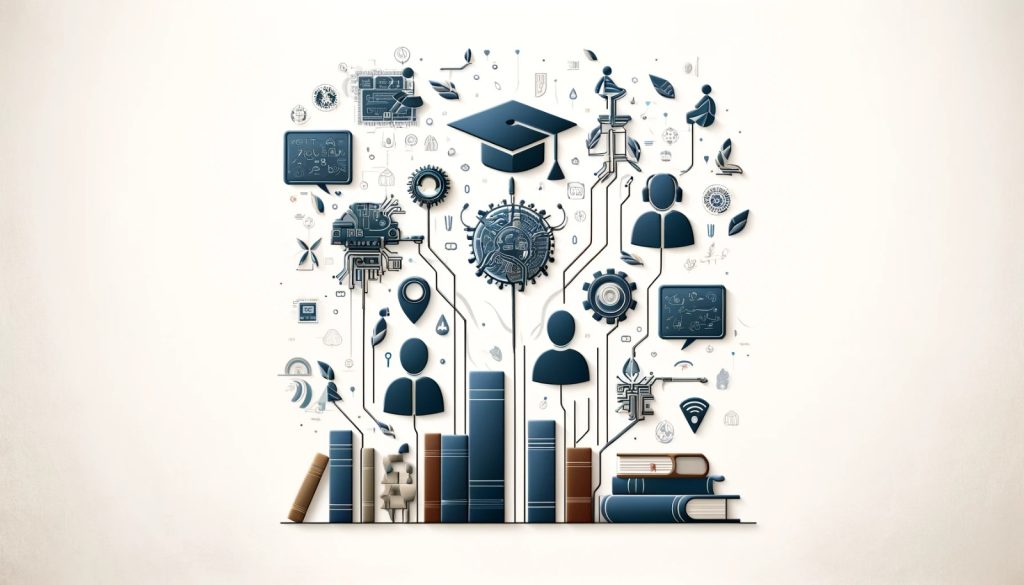As artificial intelligence (AI) technologies advance globally, Bangladesh is also witnessing a transformative shift in how work is performed and managed. With the introduction of OpenAI’s latest GPT-4o, AI’s role in the workplace is becoming increasingly significant, promising to enhance productivity and efficiency across various sectors.

The Emergence of AI as a Colleague
OpenAI’s ChatGPT desktop app, powered by the GPT-4o model, has introduced revolutionary capabilities that are reshaping workplace dynamics. One of its standout features is its ability to monitor users’ screens in real-time, providing immediate assistance and acting as a supportive colleague during challenging times. This real-time interaction can significantly reduce the response time to issues and streamline workflow, making it a valuable tool for businesses in Bangladesh aiming to boost efficiency.
During the launch of GPT-4o, OpenAI showcased its potential to revolutionize how people work. This aligns with predictions by the World Economic Forum, which anticipated that AI could impact around 40% of working hours. With the rapid advancements in AI, this figure could potentially rise to 90%, suggesting a future where AI dramatically enhances productivity.
AI as a “Senior Employee”
In an interview with the All-In Podcast, OpenAI CEO Sam Altman likened AI systems to a “senior employee” who can engage with users much like a trusted colleague. Unlike an agent that follows commands unquestioningly, a senior employee-like AI can reason, push back on illogical requests, and manage tasks with a higher degree of autonomy. This capability is especially beneficial for businesses in Bangladesh, where managerial oversight can be streamlined, and decision-making can be enhanced through AI support.
Transforming Job Markets in Bangladesh
The integration of AI into the workplace is already evident in global corporate decisions. For instance, an e-commerce company in Bengaluru replaced 90% of its customer support staff with an AI chatbot. Similar trends are expected to surface in Bangladesh, where companies are increasingly investing in AI technologies. According to a McKinsey report, investment in AI has surged, with a significant portion of digital budgets now allocated to AI development. In the next three years, 63% of businesses expect to increase their AI investments.
This shift towards AI is not limited to customer support; it extends to various functions including engineering, sales, and marketing. Companies are beginning to value AI-driven solutions for their ability to handle repetitive tasks efficiently, allowing human employees to focus on more strategic roles. This transition could lead to a reduction in staffing needs, as seen in some international examples, but it also opens up new opportunities for those with AI-related skills.

AI in Employee Monitoring
While the potential for AI to replace certain job functions is substantial, its current application in many Bangladeshi organizations is focused on monitoring. AI tools are increasingly used for screening job applications, tracking employee productivity, and managing workflow. This trend highlights a dual role for AI in the workplace: as both a facilitator of work and a monitor of performance.
Adapting to the AI Era
As AI continues to evolve, its applications will expand beyond initial expectations, fundamentally altering the nature of work. For the Bangladeshi workforce, this means adapting to new roles and responsibilities shaped by AI technologies. Continuous learning and upskilling are crucial to remain competitive in an AI-driven job market.
Educational institutions and training programs in Bangladesh must focus on AI literacy and related skills to prepare the future workforce. Embracing AI as a complement to human capabilities rather than a replacement can lead to a more innovative and productive work environment.
The rise of AI in Bangladesh is set to transform the workplace, enhancing productivity and redefining job roles. While challenges such as job displacement may arise, the overall impact of AI is poised to create a more efficient and dynamic work environment. By adapting to these changes and investing in continuous learning, Bangladeshi workers can thrive in this new era of technological advancement.
















